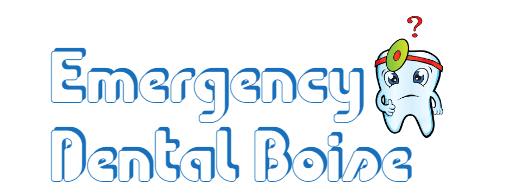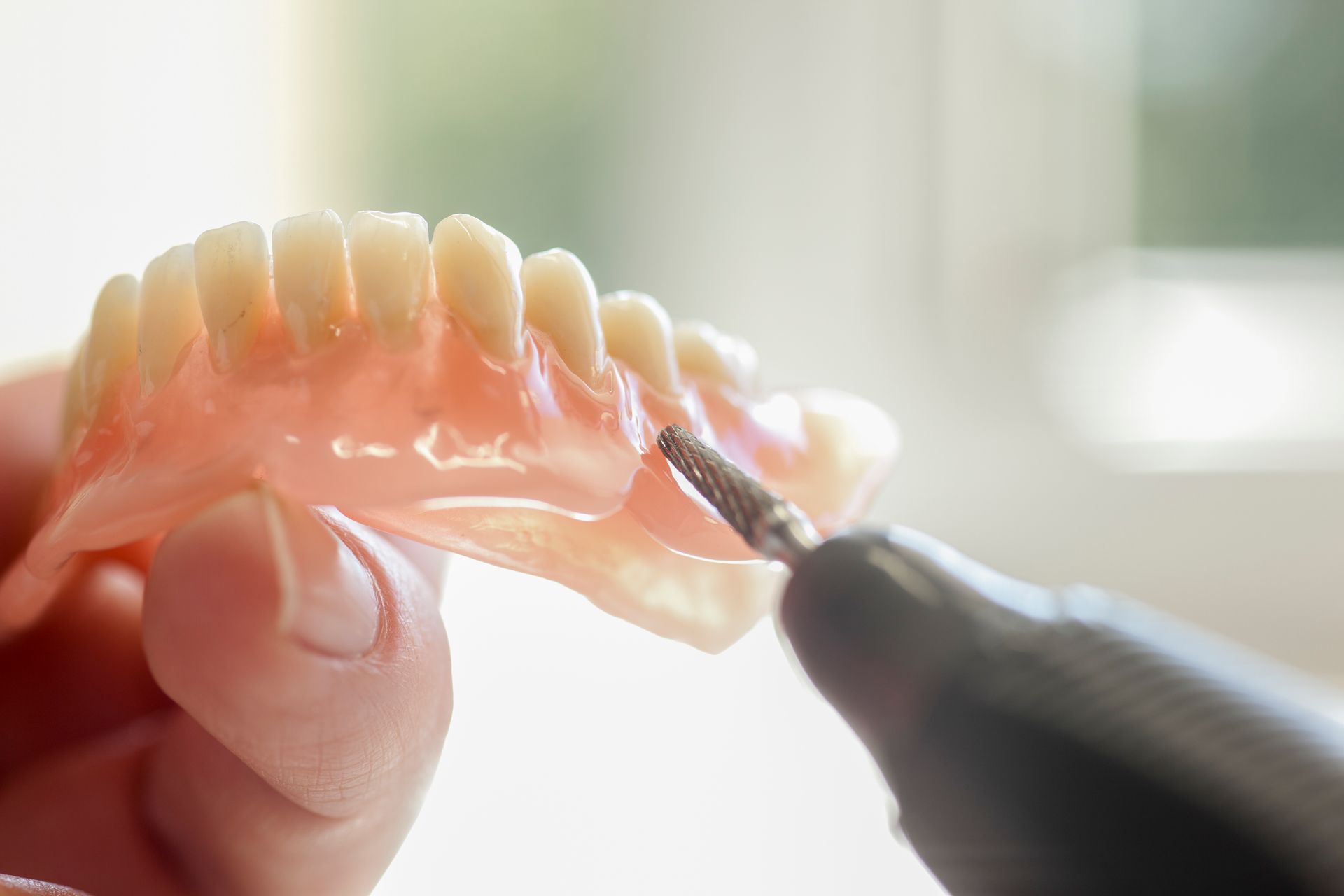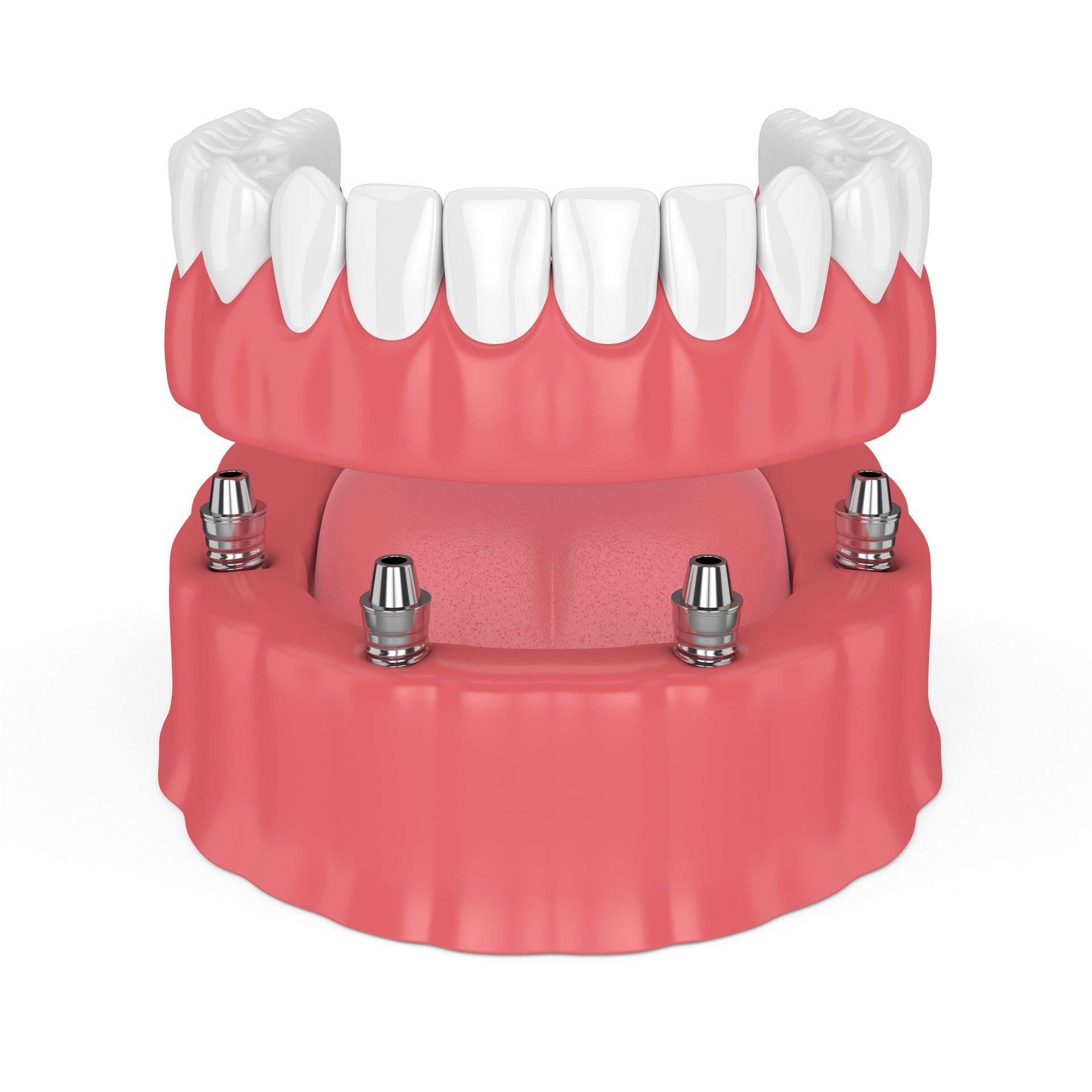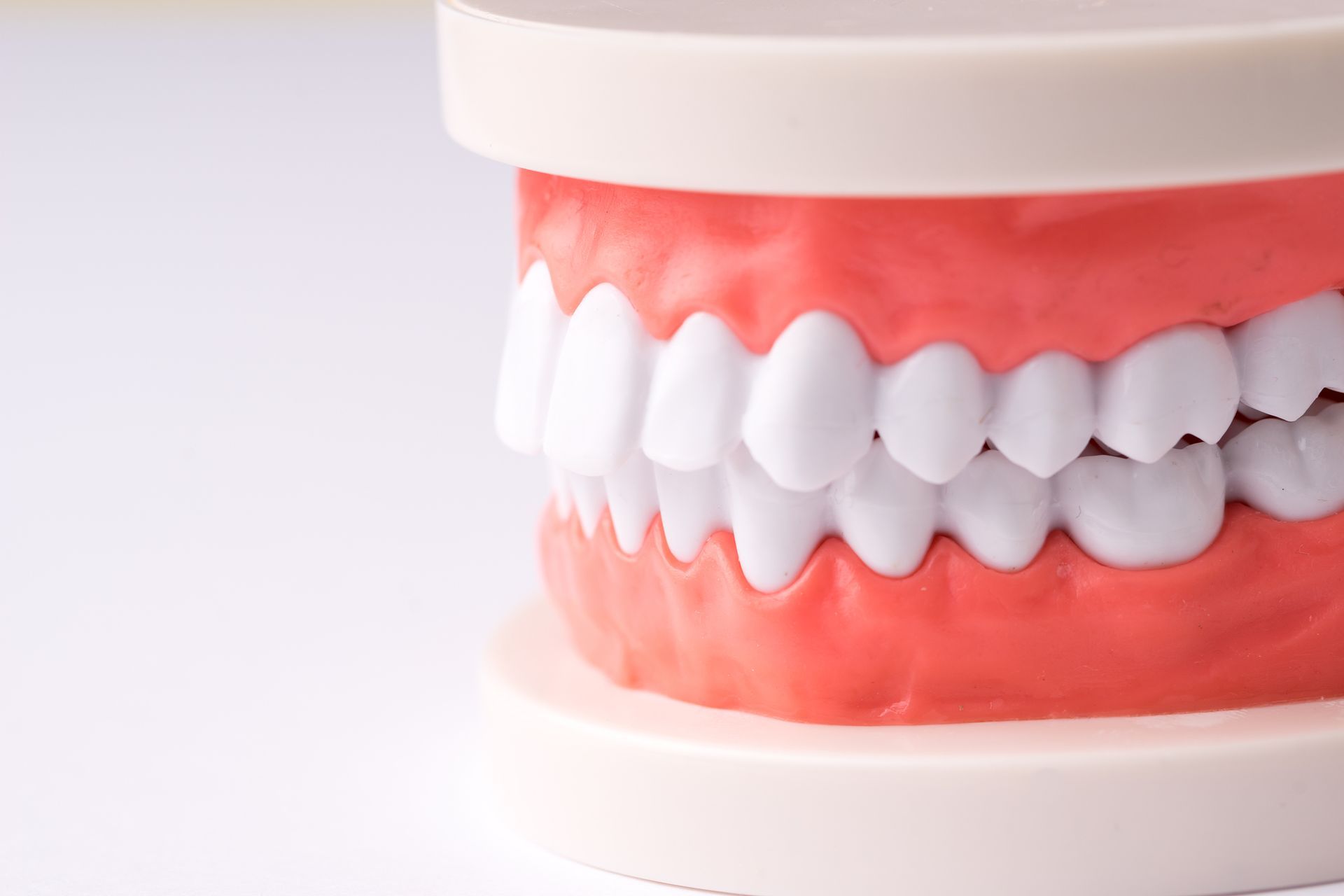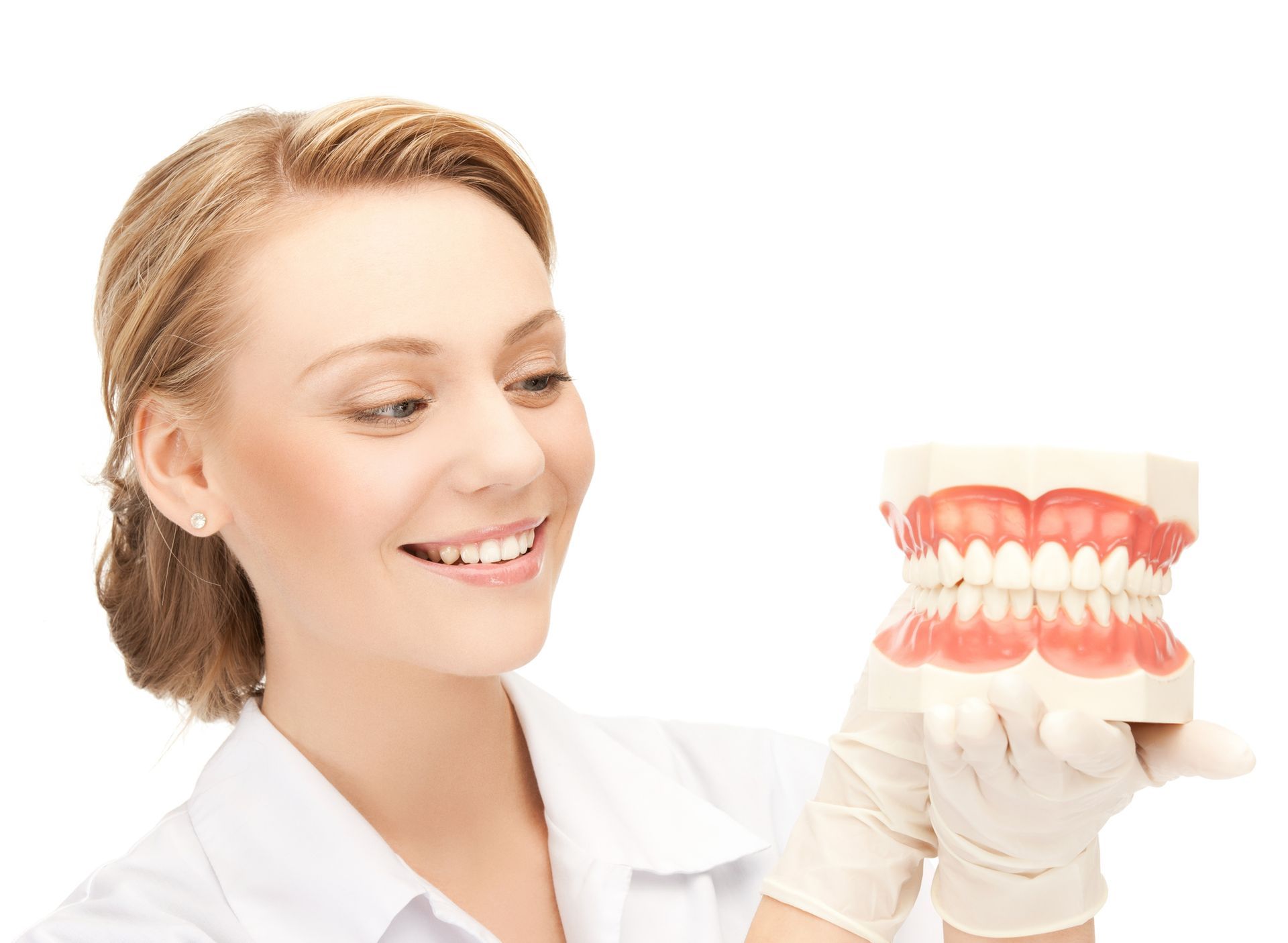Dental Implants: Are You a Suitable Candidate?
Dental implants are a popular solution for replacing missing teeth, but not everyone is a suitable candidate for this procedure. Factors such as healthy gums, sufficient bone density, good oral hygiene, and non-smoking status play a role in determining candidacy.
Evaluations and assessments are conducted to ensure a successful outcome. If you are considering dental implants in Tulsa, it is important to determine if you meet the criteria for this treatment.
Contact Us
We will get back to you as soon as possible.
Please try again later.
Key Takeaways
- Not everyone is a suitable candidate for dental implants
- Healthy gums, sufficient bone density, good oral hygiene, and non-smoking status are important factors
- Evaluations and assessments are conducted to determine candidacy
- Consult with a dental implant specialist in Tulsa to assess if you meet the criteria
- Dental implants can offer a remarkable solution for replacing missing teeth and restoring smiles
Factors for Dental Implant Candidacy
Dental implants are a suitable solution for most individuals who are missing one or more teeth. However, certain factors play a significant role in determining candidacy for this procedure. Let's explore the key factors that dental implant specialists in Tulsa consider when assessing patients' eligibility for dental implants.
- Healthy Gums and Bone Support: Healthy gums and sufficient bone support are crucial for successful dental implant placement. Candidates with gum infections or periodontal disease may need to address these issues before proceeding with the implant surgery. Adequate bone density is necessary to support the implants effectively. In cases where jawbone loss has occurred, bone grafting procedures can rebuild the bone structure, making dental implants possible.
- Overall Health and Medical History: Evaluating each patient's overall health and medical history is an important step in determining dental implant candidacy. Conditions such as uncontrolled diabetes, cancer, radiation to the jaws, and uncontrolled gum disease may increase the risk of complications during the implantation process. It is crucial to discuss any existing medical conditions with the dental implant specialist in Tulsa to ensure a safe and successful procedure.
- Lifestyle Factors and Habits: Smoking and heavy alcohol consumption can negatively impact dental implant outcomes. Candidates are encouraged to quit smoking before undergoing the procedure to improve the chances of successful implantation. Additionally, habits like teeth grinding (bruxism) can put excessive pressure on the implants, potentially leading to long-term damage. Discussing these lifestyle factors with the dental implant specialist can help determine the best course of action for each individual.
To summarize, factors such as healthy gums, sufficient bone density, overall health, and lifestyle habits play a crucial role in determining candidacy for dental implants. Consulting with a dental implant specialist in Tulsa is essential for a comprehensive evaluation and personalized treatment plan that suits your specific needs.
Importance of Healthy Gums for Dental Implants
When it comes to dental implants, healthy gums play a vital role in ensuring a successful outcome. Gingivitis and periodontal disease can have a significant impact on implant surgery and the healing process. That's why it is crucial to prioritize and maintain good gum health before and after the procedure.
Gum infections can interfere with the proper integration of the implant into the jawbone, increasing the risk of complications. During dental implant surgery, specialists work closely with the gums to ensure a precise and secure fit. Any existing gum infections can compromise the healing process and affect the long-term success of the implants.
To promote healthy gums, it is important to practice good oral hygiene. This includes regular brushing, flossing, and routine visits to your dentist. By maintaining exemplary oral health and hygiene, you not only support the success of dental implant surgery but also contribute to your overall oral well-being.
Role of Regular Dental Check-ups
In addition to proper oral hygiene practices, routine dental check-ups are essential for monitoring the health and condition of both your dental implants and surrounding gums. Regular visits to your dentist allow for early detection of any potential issues that may arise, ensuring prompt intervention and preventing more significant problems down the line.
Importance of Contacting Our Dental Implant Clinic
If you are considering dental implants in Tulsa, it is crucial to consult with our experienced dental implant specialists. Our team will evaluate your gum health and overall oral condition, assessing your eligibility for the procedure. By choosing our clinic, you can trust that you are in the hands of professionals who prioritize your long-term oral health and the success of your dental implants.
Benefits of Healthy Gums for Dental Implants:
- Ensures proper integration of the implant into the jawbone
- Reduces the risk of complications during and after surgery
- Promotes optimal healing and long-term success of the implants
- Contributes to overall oral well-being
- Allows for early detection of potential issues through routine check-ups
- Our dental implant specialists prioritize your oral health and implant success
Take the first step towards a brighter, more vibrant life. Contact us today to schedule an appointment with our skilled denturist. Your new smile awaits. Contact Tulsa Teeth at (208) 226-7721 and rediscover the joy of a beautiful, functional smile.
Sufficient Bone Density and Dental Implants
Dental implants require sufficient bone density for successful placement and long-term stability. A strong jaw with adequate bone support is essential to ensure the implants integrate properly with the surrounding bone. However, individuals with jawbone loss or insufficient bone density may still be candidates for dental implants through bone rebuilding procedures.
In cases where the jawbone lacks the necessary density, bone grafting procedures can be performed. These procedures involve adding bone graft material to the deficient areas of the jaw, stimulating new bone growth and creating a stable foundation for the implants. The bone rebuilding process may take several months before the dental implants can be placed.
To determine the suitability for dental implants and evaluate bone density, it is crucial to consult with dental implant specialists in Tulsa. They will conduct a comprehensive examination, which may include 3D imaging to assess the condition of the jawbone and plan the appropriate treatment approach.
Factors Affecting Bone Density for Dental Implants
| Factor | Impact on Bone Density |
|---|---|
| Age | As individuals age, bone density naturally decreases, which can affect implant candidacy |
| Missing Teeth | When teeth are lost, the jawbone no longer receives stimulation, leading to bone loss over time |
| Periodontal Disease | Advanced gum disease can cause bone loss and impact the density of the jawbone |
| Previous Tooth Extractions | If a tooth extraction is not followed by a bone graft, it can result in bone resorption |
| Chronic Illnesses | Conditions such as osteoporosis or autoimmune diseases may affect bone density |
Assessing bone density is an essential step in determining the feasibility of dental implants. By working closely with dental implant specialists in Tulsa, individuals can explore bone rebuilding solutions or alternative approaches, such as mini dental implants, to achieve a functional and aesthetically pleasing smile.
The Role of Oral Health and Hygiene
Good oral health and hygiene are essential not only before dental implant surgery but also after the procedure. Prior to the surgery, patients should have no existing infections or dental problems that could interfere with the surgical process. Maintaining exemplary oral hygiene, which includes daily brushing and flossing, is crucial for the long-term success of dental implants.
Routine follow-up visits to the dentist for check-ups and cleanings are also essential. These visits ensure the health and maintenance of both the implants and the surrounding gums. Regular dental care plays a vital role in preventing potential complications and detecting any issues early on.
Benefits of Good Oral Hygiene for Dental Implants
- Promotes healing: Proper oral hygiene can facilitate the healing process after implant surgery, minimizing the risk of complications and promoting successful integration of the implant with the jawbone.
- Prevents infections: Regular brushing and flossing help prevent gum infections and diseases that can negatively impact implant outcomes. By maintaining healthy gums, patients can safeguard the long-term stability of their dental implants.
- Preserves surrounding teeth: Good oral hygiene practices prevent the development of cavities and gum disease in the remaining teeth. This helps preserve the overall oral health and ensures the longevity of dental implants.
Post-Surgery Oral Hygiene Tips for Dental Implants
Brushing: Use a soft-bristle toothbrush and a non-abrasive toothpaste to gently brush the implant crown, abutment, and surrounding gum area at least twice a day.
- Flossing: Adopt a flossing technique that effectively cleans between the implants and natural teeth. Dental floss or interdental brushes specifically designed for implants can be used.
- Rinsing: Rinse your mouth with an antimicrobial mouthwash to reduce bacterial activity and maintain a healthy oral environment.
- Regular dental visits: Schedule routine check-ups and cleanings with your dental implant dentist in Tulsa. These visits allow for professional assessment, cleaning, and monitoring of the implants, ensuring their longevity and addressing any emerging issues.
| Oral Hygiene Practices | Benefits for Dental Implants |
|---|---|
| Regular brushing | Facilitates healing and reduces the risk of infections |
| Proper flossing | Prevents gum diseases and maintains overall oral health |
| Avoiding tobacco use | Optimizes the success of the procedure and ensures implant longevity |
| Using antimicrobial mouthwash | Reduces bacterial activity and maintains a healthy oral environment |
It is crucial for dental implant patients to prioritize their oral health and follow recommended oral hygiene routines. By doing so, they can maximize the success and longevity of their dental implants, ultimately enhancing their quality of life.
Impact of Tobacco Use on Dental Implants
Smoking and tobacco use can have detrimental effects on dental implants. The connection between oral health and overall body health is well-established, and smoking can hinder the fusion of the implant with the jawbone. It also increases the risk of complications and delayed healing. Therefore, candidates for dental implants in Tulsa are strongly encouraged to quit smoking to optimize the success of the procedure and ensure the longevity of the implants.
Why Smoking is Harmful for Dental Implants
When it comes to dental implants, smoking poses significant risks. Nicotine and other chemicals in cigarettes restrict blood flow to the gums, impeding proper healing after implant surgery. Furthermore, smoking weakens the body's immune system, making it more difficult to fight off potential infections and inflammation. This can lead to implant failure or the need for additional procedures to correct complications.
Additionally, smoking is associated with a higher risk of gum disease, which is a leading cause of tooth loss. Individuals with gum disease are not ideal candidates for dental implants, as the condition can interfere with the success and stability of the implants. Therefore, quitting smoking is crucial to improving oral health and increasing the chances of a successful dental implant procedure.
Benefits of Quitting Smoking for Dental Implants
Quitting smoking before undergoing dental implant surgery has numerous benefits. Firstly, it improves blood flow and oxygen levels in the body, promoting better healing and reducing the risk of complications. Smoking cessation also significantly lowers the risk of implant failure, as the implants have a higher chance of integrating successfully with the jawbone.
Moreover, quitting smoking improves overall oral health by reducing the risk of gum disease, tooth decay, and oral cancer. It also enhances the effectiveness of oral hygiene practices, such as brushing and flossing, which are essential for maintaining the health and longevity of dental implants.
| Effects of Smoking on Dental Implants | Impact |
|---|---|
| Delayed healing | Increased risk of complications |
| Higher risk of implant failure | Reduced success rate |
| Interference with fusion of implant and jawbone | Decreased stability |
| Weakened immune system | Higher risk of infections and inflammation |
| Increased risk of gum disease | Compromised oral health |
By quitting smoking, individuals can maximize the chances of a successful dental implant procedure and enjoy the long-term benefits of a beautiful, functional smile. If you are considering dental implants in Tulsa, consult with a dental implant dentist who can provide guidance and support in your journey to a healthier and happier smile.
Tulsa Dental Implants: Addressing Bruxism for Long-Term Success
Bruxism, or teeth grinding and clenching, can pose challenges for individuals with dental implants. The excessive pressure exerted during these habits can lead to damage and implant failure over time. To ensure the integrity and longevity of your dental implants in Tulsa, it is crucial to address bruxism.
If you struggle with bruxism, it is essential to discuss this habit with your dental implant dentist in Tulsa. Custom-fitted nightguards can be recommended to protect your implants from the negative effects of excessive pressure. These nightguards are designed to cushion the implants and reduce the impact of grinding or clenching, preventing potential damage.
By addressing bruxism, you can maintain the integrity of your dental implants, prolong their lifespan, and protect your investment in your smile. Consulting with your dental implant specialist in Tulsa will help determine the most suitable treatment approach for your specific situation.
| Nightguard Type | Pros | Cons |
|---|---|---|
| Custom-Fitted Nightguards | Provides optimal fit and comfort | Requires professional fitting. Can be more expensive |
| Boil-and-Bite Nightguards | Convenient and readily available | May not provide perfect fit. May not be as durable as custom-fitted nightguards |
| Over-the-Counter Nightguards | Affordable and easily accessible | May not fit properly. May not offer sufficient protection |
Comparing different types of nightguards for bruxism. Custom-fitted nightguards provide the best fit and comfort, although they require professional fitting and may be more expensive. Boil-and-bite nightguards offer convenience and accessibility but may not provide a perfect fit or long-term durability. Over-the-counter nightguards are affordable and readily available but may not offer adequate protection and proper fit.
By utilizing the appropriate nightguard for your bruxism, you can protect your dental implants, reduce the risk of complications, and ensure the long-term success of your dental implant surgery in Tulsa.
Mini Dental Implants for Candidates with Specific Needs
While full-sized dental implants are the ideal option for replacing missing teeth, not all individuals may meet the necessary requirements. In such cases, mini dental implants can offer a suitable alternative for those who do not qualify for traditional implants. These smaller implants have a smaller diameter and require less jawbone density for placement, making them a viable option for candidates with specific needs.
Mini dental implants are especially beneficial for individuals with insufficient bone density, as they can be successfully placed without the need for bone grafting procedures. This minimally invasive approach allows for a more comfortable and efficient treatment process, with quicker healing times.
Consulting with dental implant specialists in Tulsa is essential to determine if mini dental implants are the right solution for your individual case. They will evaluate your oral health, discuss your specific needs, and determine the most appropriate treatment plan. With mini dental implants, candidates with unique circumstances can still achieve the benefits of dental implants and enjoy a restored smile.
Maintaining Dental Implants for Long-Term Success
Proper care and maintenance are vital for ensuring the long-term success of dental implants. By following a recommended oral hygiene routine and attending regular dental check-ups, you can keep your implants and surrounding gums healthy. Here are some key steps to maintain your dental implants:
- Brush and floss regularly: Brush your teeth at least twice a day using a soft-bristle toothbrush and fluoride toothpaste. Pay special attention to the areas around the implants, ensuring thorough cleaning. Use dental floss or interdental brushes to clean between the teeth and implants.
- Attend routine dental visits: Regular dental check-ups are essential for monitoring the condition of your dental implants. Your dentist will examine your implants, evaluate the health of your gums, and perform professional cleanings to remove plaque and tartar buildup.
- Avoid harmful habits: Avoid habits that can damage your dental implants, such as smoking and excessive alcohol consumption. These habits can impair the healing process and increase the risk of complications. Additionally, if you have a habit of grinding or clenching your teeth (bruxism), consult your dental implant dentist in Tulsa for recommendations on nightguards or other protective measures.
Take the first step towards maintaining a healthy and functional smile by contacting Tulsa Teeth at (208) 226-7721 to schedule an appointment with our skilled denturist. Our team is dedicated to helping you maintain the longevity of your dental implants and enjoy the benefits of a beautiful smile.
Conclusion
Dental implants offer a remarkable solution for replacing missing teeth and restoring smiles. With the help of dental implant specialists in Tulsa, individuals with healthy gums, sufficient bone density, and good oral hygiene can benefit from this innovative treatment. Achieving a brighter and more vibrant smile is within reach.
To take the first step towards your new smile, contact Tulsa Teeth today to schedule an appointment with our skilled denturist. Our team is dedicated to helping you regain confidence and enjoy the functional and aesthetic benefits of dental implants. Rediscover the joy of a beautiful smile by calling us at (208) 226-7721.
At Tulsa Teeth, we understand the importance of affordable dental care. That's why we offer competitive pricing for dental implants, ensuring that our patients can access high-quality treatment without breaking the bank. Experience exceptional dental care with the best dental implant specialists in Tulsa.
You might also like
Denture Clinics Of Tulsa Blog & News
Book a Service Today
We will get back to you as soon as possible
Please try again later
Flash Those Beautiful Smiles!
Let our professional dentists helps your fill in the gaps inside your mouth. Don't be afraid to invest on your teeth, boost your confident with a smile.

Affordable Dentures & Implants from Tulsa's #1 Rated Denture Clinics! Call Today For an Appointment.
Navigation
Services
Disclaimer: www.tulsateeth.com is a free service to assist users in connecting with
local healthcare providers. www.emergencydentalboise.com is not a doctor’s office nor a doctor referral service nor is it a substitute for visiting a doctor. Nothing contained on or offered through this site should be
construed as medical advice and should not be relied upon for medical diagnosis or treatment.
www.tulsateeth.com does not endorse or recommend any participating Third-Party Healthcare Providers
that pay to participate in this advertising. All persons depicted in a photo or video are actors or
models and not doctors listed on www.tulsateeth.com.
All Rights Reserved | www.emergencydentalboise.com
